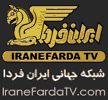July 17, 2006
Hezbollah: The legitimate son of the Iranian revolution
By Ali NouriZadeh
London, Asharq Al-Awsat - The emergency meeting of the Supreme National Security Council, chaired by President Mahmoud Ahmadinejad, to discuss the latest developments in Lebanon and the ongoing Israeli aggression, came as no surprise to political circles in Tehran.
Observers of the strong and comprehensive relations between Iran and Hezbollah, still remember how the Party of God was born from the Amal movement, in a caesarian birth, with the assistance of the Iranian midwife, Ali Akbar Mohtashemi, Iran’s former ambassador in Damascus. Indeed, Hezbollah is not only the legitimate son of the Iranian revolution, but also the sole successful organization, according to the Iranian view, out of all the groups that were established in the region, with Iranian funding. Hezbollah has gained political legitimacy in Lebanon and won over the Lebanese and Arab publics.
In other words, Hezbollah, which was created in 1984 to establish an Islamic Republic in Lebanon, has been transformed, after years of being responsible for the bombing of the US Marines headquarters in Beirut and the US embassy, as well as the kidnapping of a TWA flight, into a mammoth semi-state structure, with a military force, intelligence services and social organizations, including schools and hospitals.
Relations between Hezbollah and Iran, its main backer and financer, has evolved through the years, with the isolation of Sheikh Subhi al Tufeili, who was faithful to Imam Moussa al Sadr’s legacy, the assassination of its Secretary-General Abbas al Mussawi in an Israeli rocket attack in 1992, and the election of Sayyid Hassan Nasrallah, the Ali Khamenei’s student, and resembled the relationship of a father and his son.
With the disappearance of Imam Moussa al Sadr, the Shiaa community in Lebanon found itself orphaned and lacking a figure that would protect them.
Despite the Shiaa in Lebanon admiring the Islamic revolution in Iran and its leader Ayatollah Khomeini, Sadr’s followers and members of the Amal movement rejected Iranian tutelage and maintained their independence. On his first visit to Tehran, Hussein al Husseini, the movement’s former Secretary General, told Iranian revolutionary leaders the Shiaa in Lebanon supported them, as long as they respected Lebanon’s independence and recognized its special characteristics.
The idea of creating a party independent of the Amal movement was developed during Mohtashimi’s secret visits to Baalbeck, where he met with Moussawi and revealed his readiness to split from Amal and establish an Islamic Amal, “as the continuation of the Islamic revolution in Lebanon.”
However, Mohatashemi was eager to establish a larger party and one that would be able to transform Lebanon into an Iranian colony. Soon after, in a meeting in the Iranian embassy in Damascus, seven former Amal members and four student of Khomeini took an oath to remain loyal to the Supreme Leader and wilayat e faqih.
Khomeini preferred Sayyif Mohammed Hussein Fadlallah to become Hezbollah's supreme authority but the latter opted to remain outside of any political framework and to act as an authority for everyone.
Disagreements soon emerged between Sobhi al Tufeili, the party’s first leader, and the revolutionary guards in Lebanon and Mohtashemi Pour who wanted Hezbollah leaders to closely follow his orders. This was accompanied by the rise of Abbas al Moussawi, who was admired and loved by Khomeini as a son. He was assassinated by an Israeli rocket attack on his convoy in February 1992. His successor, Sayyid Hassan Nasrallah, revolutionized the party. Under his rule, the Party of God grew into the biggest political, military, social and religious institution in the region. Accordingly, the party’s budget grew from 10 million dollars to more than half a billion dollars a year, in addition to a separate budget for al Manar televison and other media outlets.
Recent statements by Iranian officials, warning Israel against attacking Syria , were suspiciously free of any mention of Lebanon , which is reeling from Israeli bombings. But, a senior Iranian official told Asharq al Awsat, “Hezbollah is part of us and does not need guarantees to be certain the Islamic Republic is with it. We are standing with the Party, in spirit and physically, militarily and financially.”

